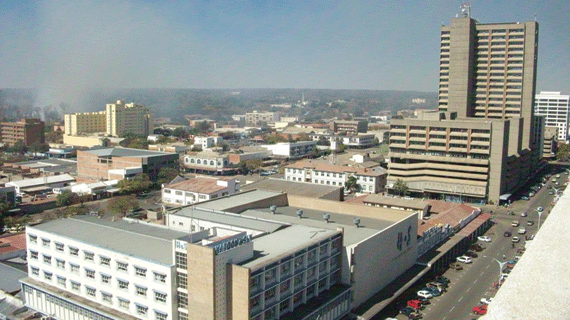
THE Matabeleland Trade and Investment Network (MTIN) has urged the business community in Bulawayo to continue scouting for potential investors from South Africa for the revival of dormant industries. MTHANDAZO NYONI OWN CORRESPONDENT
MTIN is an organisation representing business groups in the region. MTIN chairperson Donald Khumalo told Southern Eye Business that they were keen to see Bulawayo’s yesteryear glory being revived.
He said it was necessary for the business community to continuously engage potential investors, especially from South Africa.
“I would like to urge companies and businesses in the city not to get tired of scouting for potential investors.
“Let’s engage South Africa because we believe they can help. We don’t want to be a conduit of business failures,” said Khumalo.
A six-member business delegation from South Africa recently visited Bulawayo during the 55th edition of the Zimbabwe International Trade Fair scouting for business opportunities in the city.
The delegation met with Bulawayo mayor Martin Moyo at the council chambers and expressed interest in investing in Bulawayo; particularly reviving some of the city’s factories which in the past few years have thrown more than 20 000 workers onto the streets.
They said they were looking for investment opportunities in mining, agriculture, tourism, among other sectors of the economy in the region and spearheading the recovery of the industries currently in a sorry state. Addressing them, Moyo said Bulawayo had a lot of opportunities and encouraged regional and international companies to come and invest.
- Chamisa under fire over US$120K donation
- Mavhunga puts DeMbare into Chibuku quarterfinals
- Pension funds bet on Cabora Bassa oilfields
- Councils defy govt fire tender directive
Keep Reading
Bulawayo is one of the cities in Zimbabwe hit by deindustrialisation after recording close to 100 company closures last year. More companies continue to downsize and some are relocating to other cities, leaving thousands of locals unemployed.
The closure of companies in Bulawayo has largely been attributed to shortage of working capital, erratic power supplies and high operation costs largely because of antiquated machinery and the high cost of labour.
Industries in Bulawayo need an estimated $400 million to recover, but have been battling to attract the required capital largely due to policy inconsistencies — chiefly the indigenisation law.










